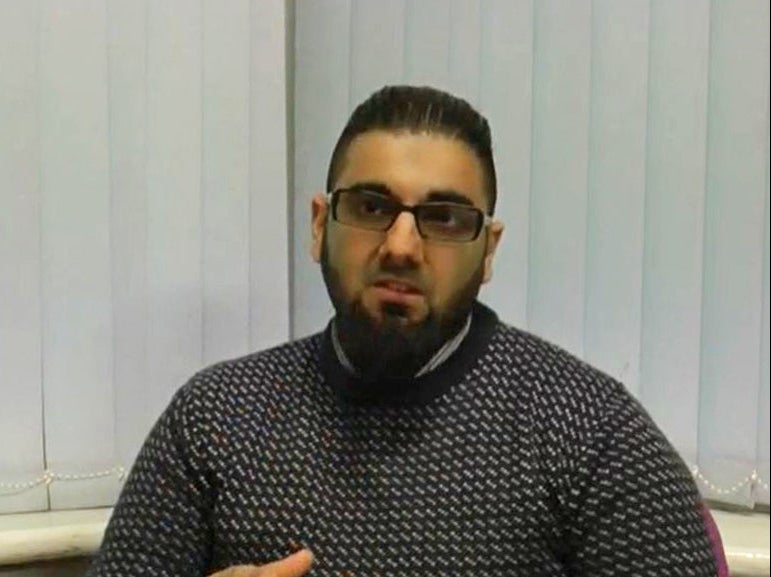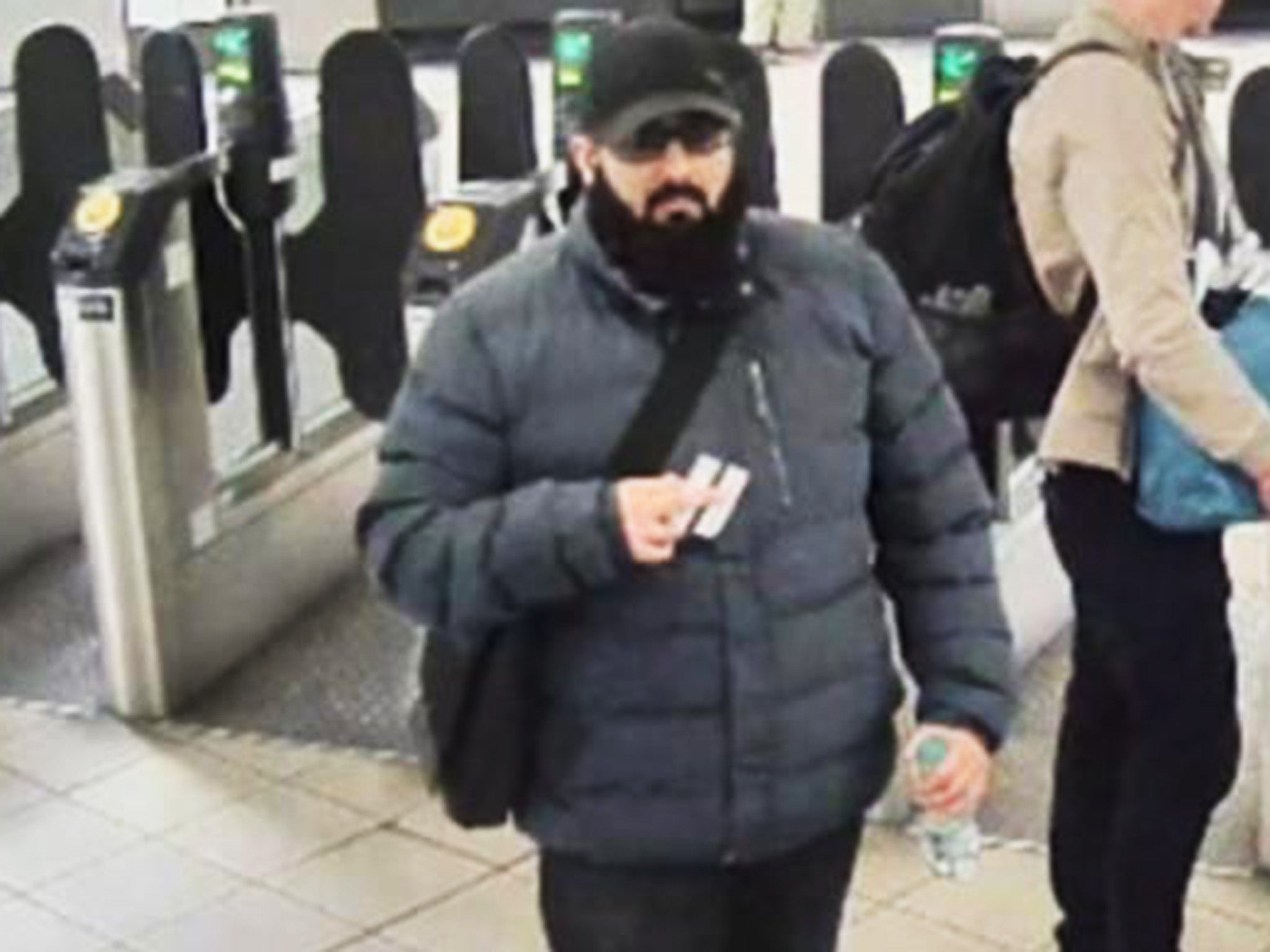Fishmongers’ Hall terror attack victim ‘uncertain’ about attending event until night before, mother says
Inquest hears that Saskia Jones was unsure about going to prison education event where she was killed
Your support helps us to tell the story
From reproductive rights to climate change to Big Tech, The Independent is on the ground when the story is developing. Whether it's investigating the financials of Elon Musk's pro-Trump PAC or producing our latest documentary, 'The A Word', which shines a light on the American women fighting for reproductive rights, we know how important it is to parse out the facts from the messaging.
At such a critical moment in US history, we need reporters on the ground. Your donation allows us to keep sending journalists to speak to both sides of the story.
The Independent is trusted by Americans across the entire political spectrum. And unlike many other quality news outlets, we choose not to lock Americans out of our reporting and analysis with paywalls. We believe quality journalism should be available to everyone, paid for by those who can afford it.
Your support makes all the difference.A woman who was murdered by a terrorist at a prison rehabilitation event had been “uncertain” about attending until the day before, her mother has said.
Saskia Jones, 23, was killed by Usman Khan at an anniversary celebration held by Cambridge University’s Learning Together programme.
The inquest into her death heard that she was invited after volunteering with the programme at HMP Grendon.
Saskia was later alerted to job opportunities at Learning Together by staff including its course co-ordinator Jack Merritt, who was also murdered in the attack at Fishmongers’ Hall on 29 November 2019.
Her mother, Michelle Jones, said she “supported the aims of Learning Together and believed in its ethos of providing opportunities for ex-offenders to rebuild their lives”.
She said her daughter told her that she volunteered with the group because she was looking into teaching in prison, but later applied to join the police as a victim support officer.
Ms Jones said she became aware of the Fishmongers’ Hall event on 25 September, when her daughter told her she had received an invitation.
“Saskia was at first unsure if she should go to the event and this uncertainty persisted until the evening before,” she said in a written witness statement read to the hearing. “She decided to go because it was an anniversary.”
Ms Jones said Saskia did not reply to the initial invite “because of uncertainty in attending” and applied for a ticket in October.
She added: “Saskia was not aware of who would be attending the event. I asked Saskia the evening before and she still did not know, save for a few staff who were detailed on the programme for the event.”
The inquest previously heard that Khan and Saskia were sat on the same table for the opening session of the event by chance.
They were caught on film having an apparently cordial conversation, although what they said could not be heard.

Ms Jones said her daughter believed in prisoner rehabilitation broadly, but thought terror offenders should be monitored more closely than other types of criminals and treated with caution.
“She was not naive in her approach despite her desire to see the good in people,” she added.
Khan launched his attack shortly before 2pm, after using a break between sessions to make his final preparations in a toilet.
He strapped two large kitchen knives to his hands, revealed a fake suicide vest he previously hid under clothing and shaved off his body hair in preparation for “martyrdom”.
Khan fatally attacked Mr Merritt after emerging from the cubicle to find him in the men’s toilets; he stabbed Saskia in the neck in an adjoining cloakroom.
He stabbed three other people who survived their injuries, before being chased out of Fishmongers’ Hall by attendees and shot by police on London Bridge.
Khan had been released from prison in December 2018 after serving a prison sentence for preparing acts of terrorism, by planning to set up a terrorist training camp in Kashmir.
The inquests have been told of intelligence that during his time in prison, Khan was involved in radicalising fellow inmates, assaults and extremist bullying.

During his eight years in prison, Khan was assessed to be among the 70 highest-risk prisoners in the country, and associated with terrorists including Fusilier Lee Rigby’s killer Michael Adebowale.
At a meeting on 5 December 2018, shortly before Khan’s release, police and probation officials discussed the threat he still posed.
Minutes shown to the inquests on Tuesday recorded that prison intelligence suggested that Khan had tried to radicalise Muslim prisoners and targeted them at Friday prayers.
“Khan has said that he will return to his old ways, believed to be related to terrorism, when he is released,” the minutes said.
Phil Bromley, a probation officer who was Khan’s offender manager between 2012 and 2017, said he had undergone the Healthy Identity Intervention counterextremism programme in prison as well as religious mentoring and education programmes.
He said he had a “sense of scepticism” throughout Khan’s prison sentence because his apparent progress with courses clashed with his sometimes violent behaviour and intelligence about his views.
In a March 2015 report, Mr Bromley wrote: “He is certainly saying all the right things but of course time will tell the validity of this.”

He told the inquests that Khan’s compliance inside prison “did seem to a degree to be genuine” and that fluctuating behaviour in custody was not unusual.
The inquests heard that after being released from prison, Khan started applying for jobs but was unsuccessful largely because of his terror conviction.
Probation supervisors reduced Khan’s rating from “very high risk” to the public to “high risk” in May 2019 because he appeared to be progressing and no issues had come up.
However in July that year, officials refused permission for him to do a dumper truck training course because of the use of vehicles in terror attacks.
At the same time, Khan was undergoing mentoring under the government’s Desistance and Disengagement Programme (DDP) for terror offenders.
The hearing was told that in August 2019, mentoring stopped because of a contract issue between the company supplying the mentors and the Home Office, and that it did not resume before the attack. The inquests continue.





Join our commenting forum
Join thought-provoking conversations, follow other Independent readers and see their replies
Comments